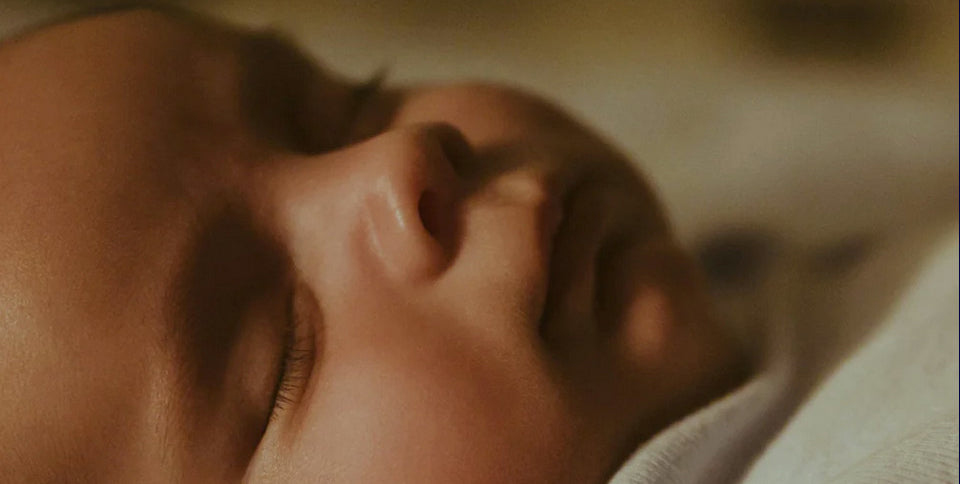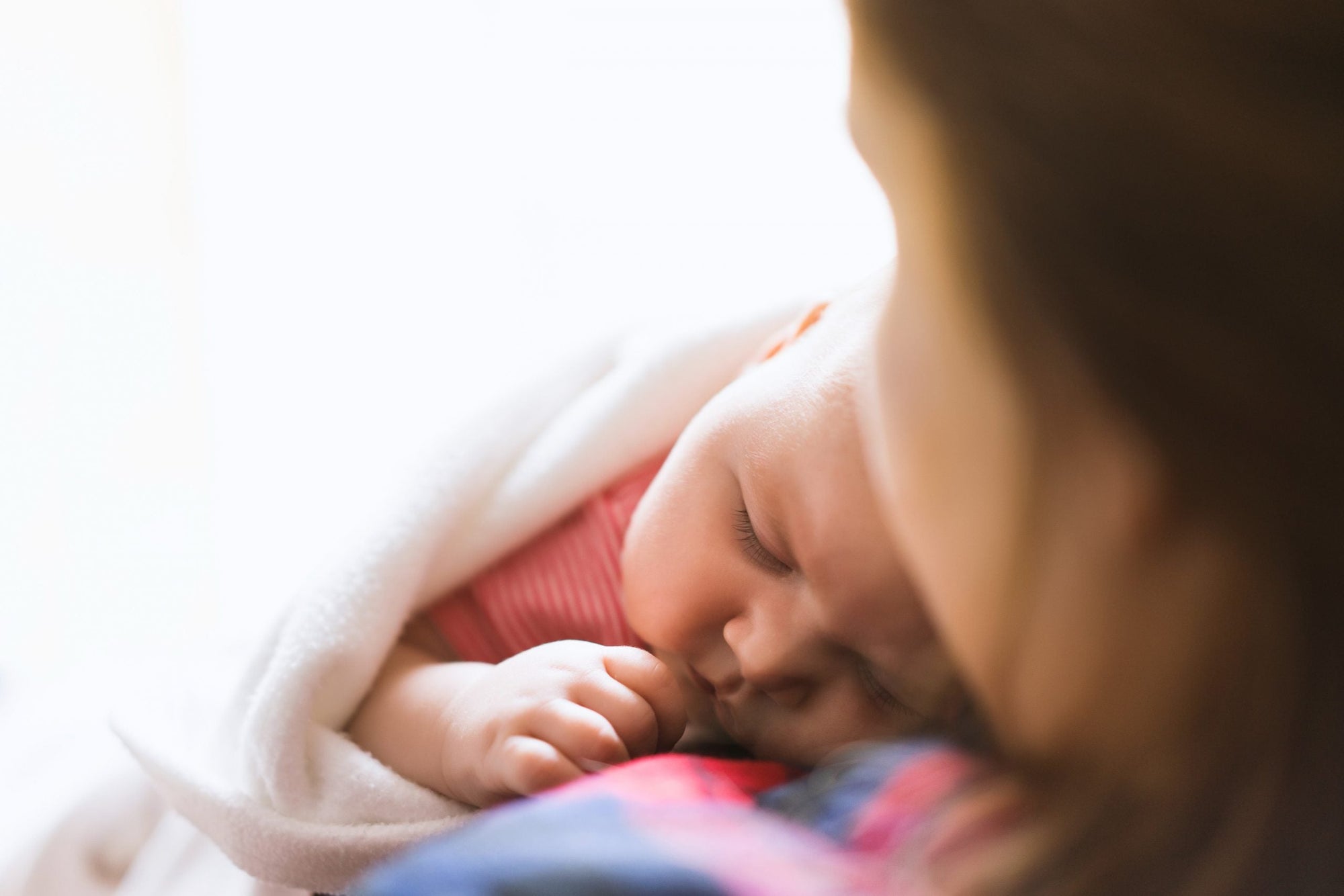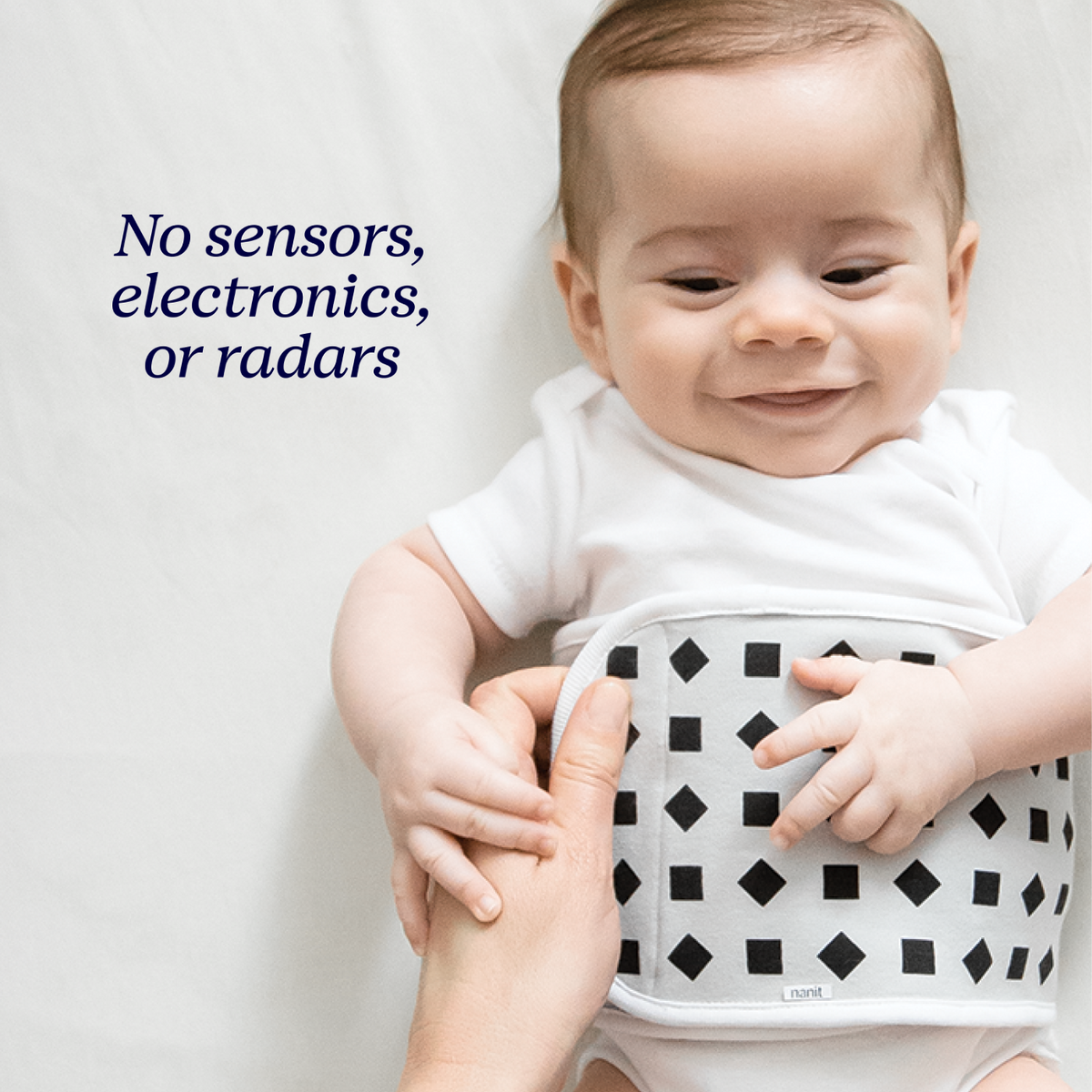As a new parent, you may be surprised at the level of worry you feel. You’ll perceive everything as a potential threat to your newborn – and a worldwide pandemic certainly doesn’t help. Even in normal times, you’ll probably tiptoe into your infant’s nursery multiple times every night, just to make sure they are still breathing — and this stress extends to the entire parenting team.
Don’t worry, you aren’t going crazy. It’s totally normal to feel this way. Your parental instincts are kicking in. And those who became a first-time mom or dad during the COVID-19 pandemic have added pressures the rest of the parenting world doesn’t. It’s hard enough being a parent on a good day, let alone during the greatest health challenge the world has faced in modern times. So, what’s it like taking care of an infant in the middle of a pandemic? Nanit’s research team in collaboration with researchers at Flinders University in Australia, conducted a study to find out.
In March, when lockdowns began across the country, families found themselves with a sudden and unexpected change in routine. Many parents were now at home all day, battling over the home office and taking turns caring for their children. Some of those who were deemed “essential workers” had to go into work and endure the stress of potentially being exposed to the virus while also figuring out new avenues for childcare. So, how did these sudden changes impact infant sleep? Let’s find out.
What We Analyzed
In our sleep impact study, we compared parents who were in quarantine or sheltering in place, to parents who were designated as essential workers during the pandemic. With consent from the families, we collected sleep data from their Nanit monitor and also surveyed each parent to get their thoughts on how the pandemic affected their infant’s sleep.
The Takeaways from Our Study
After reviewing Nanit sleep data and hearing from Nanit families, we found:
- At the end of March, parents who were quarantined or sheltered in place had infants that woke up an average of 12% more, were visited more by their parents at night and had earlier bedtimes than the babies of parents who continued to leave home daily, as essential workers.
- These differences in sleep were no longer apparent in April and May, reflecting the infants’ (or parents’) adjustment to the new situation.
- In March, parents reported that their greatest stressor was worrying about the health of their family (37%) and showed concern for the future (23%).
- As sheltering in place orders extended into April and May and the effects on the economy and jobs started to be felt, this has reversed, with parents worrying less about the health of their family (19%) and more about what the future holds (35%).
Long-term, we saw an increase in feelings of distress about relationships with family members, which tripled from March through the end of May.
If you’re a fan of charts, check out these below, which show infant nighttime awakenings (A), parent nighttime crib visits (B), and infant sleep times (C) by sheltering status (shelter-in-place and essential workers). These graphs show how the clear differences that appeared at the end of March in infant sleep were not present in April and May.
Getting enough sleep is one major source of worry for new parents — one that was there before the pandemic and it will continue to be after the threat is gone. Moms and dads worry about the sleep cycles of their babies, as well as their own. But the pandemic hasn’t only been causing sleep issues — it’s also led to stress, worry, and relationship concerns.
In additional Nanit surveying, other trends emerged:
- 68% of babies experienced some change in their routine due to the pandemic.
- As schedules changed, parents let their babies sleep longer and/or take more naps (15%) and let them have more screen time (20%).
- Nannies’ digital interactions through the Nanit app decreased by 52%.
- Grandparents’ digital interactions through the Nanit app increased by almost 20%.
This research shines a light on some important facts regarding families and the pandemic. To put it simply, most of us changed our routines due to COVID-19. And more importantly, infants are resilient—they might even be better than us at dealing with uncertainty.
How the Change in Routine was Perceived by Parents
Raw data says a lot. However, it doesn’t always perfectly reflect a parent’s perception. We asked some of our Nanit parents to tell us about their experience with the COVID-19 pandemic. These parents’ stories show us that we’re all facing day-to-day struggles due to COVID-19, yet we’re finding ways to manage. And the loss of the “village’s” involvement – nannies, extended family – has led to parents having to take on a whole new challenge.
Many Families Feel Anxiety About their Child’s Lack of Socialization
With so many experts stressing the importance of socialization, it’s hard to fault parents for feeling like their child will be missing out on some important milestones if they don’t get regular, positive interaction with others. We can start to feel as if we’re raising antisocial children who may struggle as they step into the outside world.
Nanit user, Victoria of Arizona, shared how the isolation has been affecting her family.
“We had our first born 6 weeks before COVID hit. Living across the country from family, only our parents have been able to meet him and haven’t seen him since he was 2 weeks old. My husband was deemed essential business and I had to go back to being a third grade teacher when our little guy was 9 weeks old. My husband was working longer hours than ever and I was balancing being a new mom and teacher all while working from home. We have no idea when we will see family next or how August will shape up. I think my husband and I experienced bouts of PPD and it’s been a seriously sad time in the middle of something so joyous!”
The takeaway for most of our parents? Don’t worry too much about your child’s socialization when they’re an infant — they’re likely handling the isolation far better than you. It’s only when a child reaches their toddler stage that they’ll really start to love hanging out with other children. Remember, at this point, you’re still the most important person in your child’s life, so as long as they have you, they’ll be fine.

You have plenty of time to figure out a solution to socialization for the toddler stage. When the time comes, if we’re still in a pandemic, you can opt for virtual playdates or social distancing playdates. Toddlers benefit tremendously just from playing nearby other children in a form of interaction known as parallel play. And it doesn’t necessarily require any contact at all.
Work-at-Home Parents Are Struggling While Being “On the Clock”
Some mothers emphasize the pressure put on the working mom. One mom had this to say:
“I think there is definitely more pressure on the mom now more than ever. Especially if they are now an unexpected stay-at-home mom while working full time. The anxiety of possibly risking getting COVID while getting takeout because you are exhausted from cooking or thinking of meals and snack three times a day, or stressing out about work and also the pile of dirty dishes or laundry within view.
I already had a small amount of sick leave or vacation hours due to previous child illness and don’t have the option financially to take a day or two a week off to fully take care of the kiddos. I’m sure there are some dads with similar issues as well.”
This mom has had to work with her husband to come up with a drastically new routine that lets them both work at home. This has affected their child’s sleep as well.
“My husband and I had to change our work schedule drastically so our kiddos wouldn’t have to watch me in front of a computer for 40 hours. We have also had to figure out a good sleep schedule that lets me do more complicated work things at the beginning of my shift. We are definitely going through more food at home since we are here all day.”
It has undoubtedly been a burden for many parents figuring out how to be on the clock while still being a parent. But it’s helpful to remember during those moments of stress that there are rewards to this new schedule — and they can often come unexpectedly.
The work-at-home mom quoted above was able to see one of those milestones play out in real time.
“I was able to see my son take his first steps which I didn’t think I would because normally he would go to grandmas for care while I’m working,” she said.
Looking for silver linings like that can help you manage with the stress and scheduling difficulties.
Those Who Have to Work or Venture Outside of the Home Worry About the Virus
As hard as it can be for parents to stay at home while trying to simultaneously provide daycare and be a productive worker, it can be just as hard to leave your home for work. You’re just trying to do your job, but you can’t help but worry if you’ll bring home the virus to your partner or children.

Lilly R. of Florida acknowledges she takes a risk for her job and tries to minimize how much time she spends in the outside world when she isn’t working.
“I work in the healthcare world and being a new momma of a 6 month old has been scary. We haven’t gone out too much and stay in. It’s been tough but we do what we can. I don’t want him around people when there is so much uncertainty with this virus.”
And those who do have to venture out for work sometimes wish others would do more to protect each other.
“Covid sucks! Everyone needs to be wearing masks when out and about,” she said.
Kelsey K. of Texas admits to having a fear many parents can probably relate to — how to protect her child from germs and how to tell if the baby does get sick.
“Parents like us are sleeping less because we’re worried about whether our babies are sick and how to tell. We don’t want to get them sick, but still have to go get groceries and clean everything, while trying to not be exposed.”
Many Families Are Sharing the Load
Whitney P. of Arizona, a Nanit user, was grateful her husband was able to be present because of the pandemic to share in the sleep training of their child. Sleep training a child isn’t for the faint of heart — it’s endlessly tiring when you’re doing it alone. And the progress can be undone by a parent who throws in the towel even for a day or two so they can catch up on their own sleep.
“Sleep trained twin 6 months during this, made it easier as we were both home to participate (husband used to work overnights),” Whitney said.

One survey respondent has so far enjoyed the extra help from her husband, who has been able to shelter in place with them.
“
Overall, she’s unsure what, if any, impact COVID-19 has had on her child. However, she’s finding it difficult to reconcile with the loss of daycare, which helped give her some time to run errands.
“Our little one should be in daycare, so losing those hours he would be in daycare to do errands and house chores has been difficult. In addition, doing normal errands like grocery shopping has been hard when some stores do not let you bring a stroller into the shop.”
In closing, she mentions that, no matter how exhausted she is or how cooped-up she feels, her son always manages to do something that melts her heart. Ultimately, it’s her family that gives her strength.
Need help with shopping and errands? Parents can sometimes find workarounds to help them with grocery shopping when they can’t or don’t want to take their child in a store. Some stores are offering curbside grocery shopping — you order ahead online and are assigned a pick-up time. That’s been a lifesaver for some families.
Abigail P. of California appreciates the fact that her husband has been working from home, which eliminates his three-hour-a-day commute.
“Him being home a minute after clocking out has also allowed me to devote more time to cooking (something I enjoy) and be able to cook more complicated/healthier foods,” she said.

Meg P. of Texas, a Nanit user, has chosen to see this time overall as a blessing, while acknowledging it has some difficult elements as a new parent.
“It’s been hard not seeing family and friends and trying to stay within the confines of our home. I was hoping to take advantage of this first summer with baby by taking trips, planning visits, seeing sites but I’m realizing I get to take advantage of it in different ways and being able to be home all day with baby has been the greatest blessing out of all of this.”
We’re in this Together
COVID-19 has and will continue to be an incredible trial for families. Our daily routines have changed significantly, and we have been forced to change how we work and play with our children. It’s been an exhausting journey. Yet, as one respondent points out, our love for our children will always give us the strength to keep going. While routines may change, love will always persist!
At Nanit, we’re proud to help families find their “normal” and offer tips and insightful research so parents everywhere can focus on what matters and enjoy their togetherness as much as possible. It’s hard to imagine right now, but one day when our routines are back together, you may long for one of those days when you had your sweet baby all to yourself.























